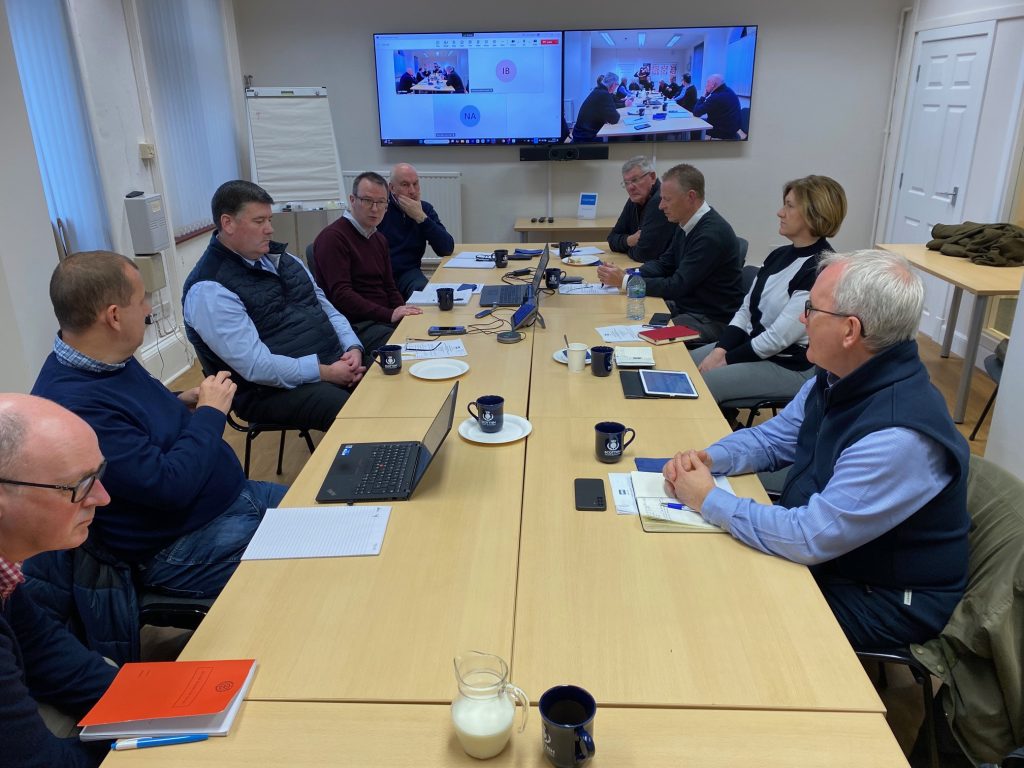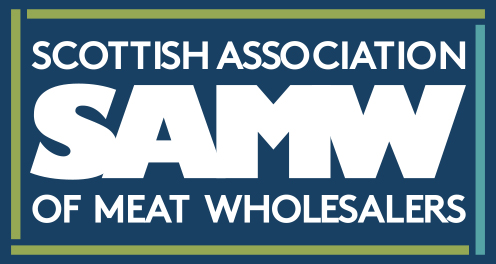Risk of red meat supply gaps in 2025
The prospect of gaps appearing in the red meat sections of UK supermarkets next year is a real possibility warns the Scottish Association of Meat Wholesalers (SAMW).
“The continuing decline in cattle numbers has worsened over the last 12 months to the extent that domestic supplies are nearing a critical tipping point, bringing is to the brink of gaps in supply at certain times of the year,” said SAMW President, Alan Brown.

Alan Brown
“Despite investing extensive time and effort in raising this issue with government ministers and officials over many years, much of which has not been taken on board at all seriously, the harsh reality is that the erosion of breeding cattle numbers has reached the stage where this is likely to be felt on retail shelves at certain points in 2025.
“SAMW member companies are already operating on reduced throughputs on a regular basis, a fact which is impacting unit costs and raising serious questions about the future viability of some processing lines and the jobs associated with them.”
Suggestions that imported product can easily fill any gaps that arise are misguided. Global red meat supplies are under pressure, with international buyers seeking to secure products from Scottish exhibitors at the recent SIAL Food Fair in Paris.
“Scotland’s cattle number decline is a massive missed economic opportunity for the country,” said Mr Brown, whose members employ close to 3000 workers across 29 processing plants. “Instead of growing our national beef herd in response to rising demand, we are merely allowing output to fall.
“Our 2025 plea to government ministers and officials is to focus on action, not words, and to stop giving mixed messages to producers and processors about the future direction for Scottish red meat production. This is one of the country’s most successful and highly regarded sectors which plays a massive part in the economic well-being of Scotland. We need the industry to be developed before it’s too late.
“Having come through a UK election in 2024, with a Scottish election due within the next 18 months, there is very real danger that the red meat ‘action can’ will once again be kicked down the road. No one can afford to let this happen.
“It takes three years to produce each kilogram of quality beef for which Scotland is famous, a fact which already takes the impact of any decisions reached next year, deep into 2028. Building delay on delay, while reducing the herd by stealth, does absolutely nothing for our industry, or consumers, except create the potential for empty shelves and widespread job losses.”
Rising costs
The SAMW President also warned that rising costs are impacting processors, well beyond the inflationary norm, especially as related to mandatory inspection charges imposed by Food Standards Scotland (FSS).
“During the Covid-19 pandemic, FSS showed a degree of flexibility in relation to operating measures within meat processing plants,” said Mr Brown. “Output was duly maintained in the face of extreme odds, without any reduction to food safety. We had hoped this would mark the beginning of a more sustained level of post-pandemic flexibility by FSS towards SAMW member businesses. We envisaged that the return to normal working conditions would be used to embrace a thorough modernisation of the meat inspection process, utilising new technologies and new ways of working. Unfortunately, post-Covid reality has seen a return to how it was before the pandemic struck.”
Having faced a 20% charging increase in 2024, driven by a new 35-hour week and public service pay increases of 10%, subsequently mitigated by a Scottish Government subsidy, early indications point to another major hike in FSS charges in 2025.

SAMW Executive in session in December, 2024, when supply shortages and rising costs were both given detailed attention
“We want to engage with FSS and with Government legislators over how we might create a modern and more cost-effective inspection system, fully equipped to deliver top class food safety,” said Mr Brown. “We made very little progress, if any, towards this in 2024.
“We must explore innovative solutions, such as using CCTV for ante mortem inspections. If this works, as we know it can, then we can surely work together to secure the necessary legislative platform.
“There are still many reasons to be positive about Scotland’s red meat future, given the amazing production and processing base which exists in this country. It would therefore be a great waste if, instead of moving forward in 2025, the coming 12 months is allowed to become a year of costly decline, missed opportunities and empty red meat shelves.”
